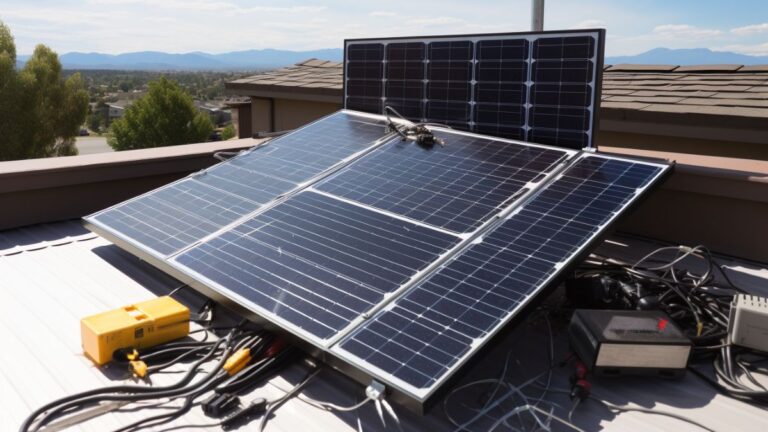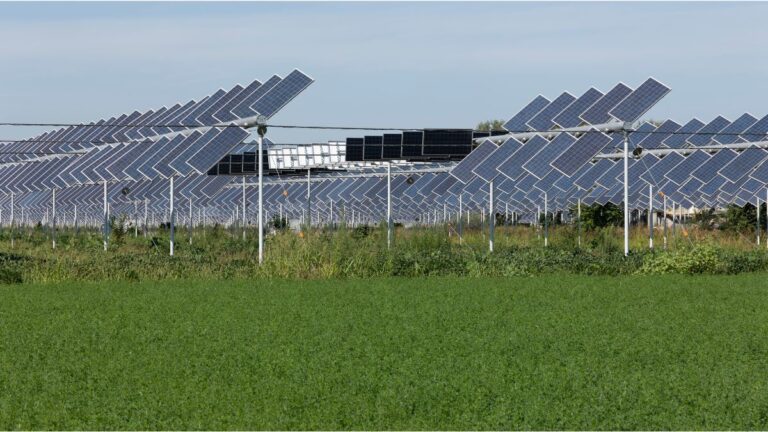Why Are Laws Governing Grid-Independent Solar Systems Crucial?
So, you’re wondering why laws governing grid-independent solar systems are so crucial?
Well, let’s take a moment to consider the chaos that would ensue without them. Picture this: solar installations popping up left and right, without any safety regulations or quality standards in place. It’d be like the Wild West of solar energy, and not in a good way.
But fear not, because these laws exist for a reason. They ensure the safety and compliance of solar installations, establish standards for smooth grid integration, and provide clarity for investors.
Intrigued? Well, buckle up, because we’re about to dive into the importance of these laws and how they contribute to a cleaner and more sustainable energy future.
Key Takeaways
- Grid-independent solar system laws drive the adoption of solar energy by promoting grid independence and encouraging widespread adoption.
- These laws ensure safety and quality standards by minimizing risks, adhering to standardized interconnection guidelines, and complying with safety regulations.
- They also encourage sustainable energy practices by establishing clear and stable policies, incentivizing solar adoption through net metering, and guaranteeing fixed rates for solar energy producers with feed-in tariffs.
- Grid-independent solar system laws address grid integration challenges by overcoming the intermittent nature of solar power, attracting investments with feed-in tariffs, and promoting safety, reliability, and efficiency in the grid.
Importance of Grid-Independent Solar System Laws
Grid-independent solar system laws play a crucial role in driving the adoption of solar energy and ensuring a seamless integration of solar systems into the power grid.
These laws are essential for promoting grid independence, enabling solar energy producers to generate clean and sustainable energy without relying solely on the grid.
By incentivizing the integration of solar power into the existing infrastructure, these laws encourage the widespread adoption of solar and contribute to reducing carbon emissions.
They also facilitate the successful grid integration of solar energy by establishing clear and stable policies that provide certainty to investors.
Grid-independent solar system laws address the intermittent nature of solar power by promoting the use of energy storage systems and encouraging the development of renewable energy sources.
In this way, they pave the way for a sustainable and resilient energy future.
Ensuring Safety and Quality Standards
Ensuring safety and quality standards is paramount for the reliable and secure integration of solar systems with the power grid. Adhering to standardized interconnection guidelines and safety regulations is essential to minimize risks and ensure the safe operation of solar energy systems.
By complying with quality standards and regulations, we promote the longevity and efficiency of solar installations, enhancing their overall reliability and performance. Proper testing and certification of solar components and systems help guarantee their safety, quality, and compatibility with grid integration requirements.
Continuous monitoring and adherence to safety and quality standards are vital for the sustainable and resilient integration of solar energy into the power grid. As the solar power industry continues to grow and play a significant role in clean energy generation, robust policies and standards are necessary to ensure the safe and effective integration of solar power systems into the grid.
Encouraging Sustainable Energy Practices
To promote sustainable energy practices and drive the shift towards a cleaner energy future, it is crucial to establish clear and stable policies that provide certainty to investors and encourage investment in solar energy projects.
Several key policies play a vital role in encouraging the adoption of solar energy systems. Net metering policies, for instance, incentivize solar adoption by allowing individuals and businesses to offset their electricity bills with excess solar power they generate.
Feed-in tariffs provide financial security for solar energy producers by guaranteeing them a fixed rate for the electricity they generate. Interconnection standards ensure the seamless integration of solar systems with the power grid, enabling the efficient and reliable distribution of solar energy.
Lastly, Renewable Portfolio Standards drive demand for solar energy, accelerating the shift towards a cleaner energy future.
| Policy | Purpose |
|---|---|
| Net metering | Incentivize solar adoption and overcome the intermittent nature of solar power |
| Feed-in tariffs | Attract investments and provide financial security for solar energy producers |
| Interconnection standards | Ensure seamless integration of solar systems with the power grid |
| Renewable Portfolio Standards | Drive demand for solar energy, accelerating the shift towards a cleaner energy future |
Addressing Grid Integration Challenges
Addressing the challenges of integrating solar power into the existing grid infrastructure requires careful planning and implementation of effective policies. To ensure the successful integration of solar energy systems, laws governing grid-independent solar systems must address the following grid integration challenges:
- Net metering policies: These policies incentivize the adoption of solar energy by allowing solar power system owners to receive credits for excess electricity they generate and feed back into the grid. This helps overcome the intermittent nature of solar power and encourages more people to invest in solar energy.
- Feed-in tariffs: By offering long-term contracts and guaranteed prices for solar energy producers, feed-in tariffs attract investments and provide financial security. This policy ensures that solar energy producers can confidently connect their systems to the grid and contribute to the overall energy supply.
- Interconnection standards: Establishing clear and standardized guidelines for connecting solar power systems to the existing power grid ensures a seamless integration process. These standards promote safety, reliability, and efficiency in the grid, facilitating the widespread adoption of solar energy.
Promoting Economic Growth and Job Creation
As we move forward in the discussion, let’s now focus on how promoting economic growth and job creation can be achieved through the implementation of favorable policies in the solar industry.
Favorable policies that provide financial incentives and support for solar installations can drive investment in solar, leading to increased demand for solar energy solutions. This, in turn, creates job opportunities and stimulates economic growth.
By reducing our dependence on fossil fuels and promoting renewable energy solutions like solar power, we can achieve energy independence and contribute to a cleaner and more sustainable future.
Policies that encourage seamless integration of solar systems into the grid can address challenges associated with grid reliability, making solar installations more reliable and efficient.
Furthermore, policies such as net metering can reduce energy bills for residential and commercial solar panel owners, putting money back into the pockets of consumers and stimulating local economies. Feed-in tariffs can provide stability and a constant revenue stream for renewable energy investors, attracting more capital into the solar industry.
Frequently Asked Questions
What Is the Purpose of the Grid in a Solar System?
The grid in a solar system ensures reliability, energy independence, cost savings, and environmental benefits. It provides backup power, especially in remote locations, while reducing the carbon footprint. It promotes off-grid living, sustainable energy, and rural electrification.
Why Do We Need Off-Grid Solar System?
You need off-grid solar systems because they offer numerous advantages such as sustainability, cost-effectiveness, and energy independence. They provide renewable energy access in remote areas, reduce environmental impact, and ensure power during outages. Embrace liberation with off-grid living.
Why Should the Government Invest in Solar Energy?
The government should invest in solar energy because it provides economic benefits, promotes environmental sustainability, ensures energy independence, creates jobs, reduces reliance on fossil fuels, mitigates climate change, advances technology, increases energy security, saves costs in the long term, and improves public health.
Why Is the Government Pushing Solar Panels?
The government is pushing solar panels for a multitude of reasons. Environmental benefits, economic advantages, job creation, energy independence, greenhouse gas reduction, national security, technological advancements, public health benefits, long term cost savings, and mitigation of climate change are all factors.
Conclusion
Laws governing grid-independent solar systems are crucial for ensuring safety, promoting sustainability, addressing integration challenges, and driving economic growth.
By establishing standards and providing clarity, these laws enable the efficient and effective integration of solar energy into the grid. They protect property owners and the utility grid, encourage investment and job creation, and ultimately contribute to a cleaner and more sustainable energy future.
Without these laws, the potential of solar energy to transform our energy landscape would be hindered.





